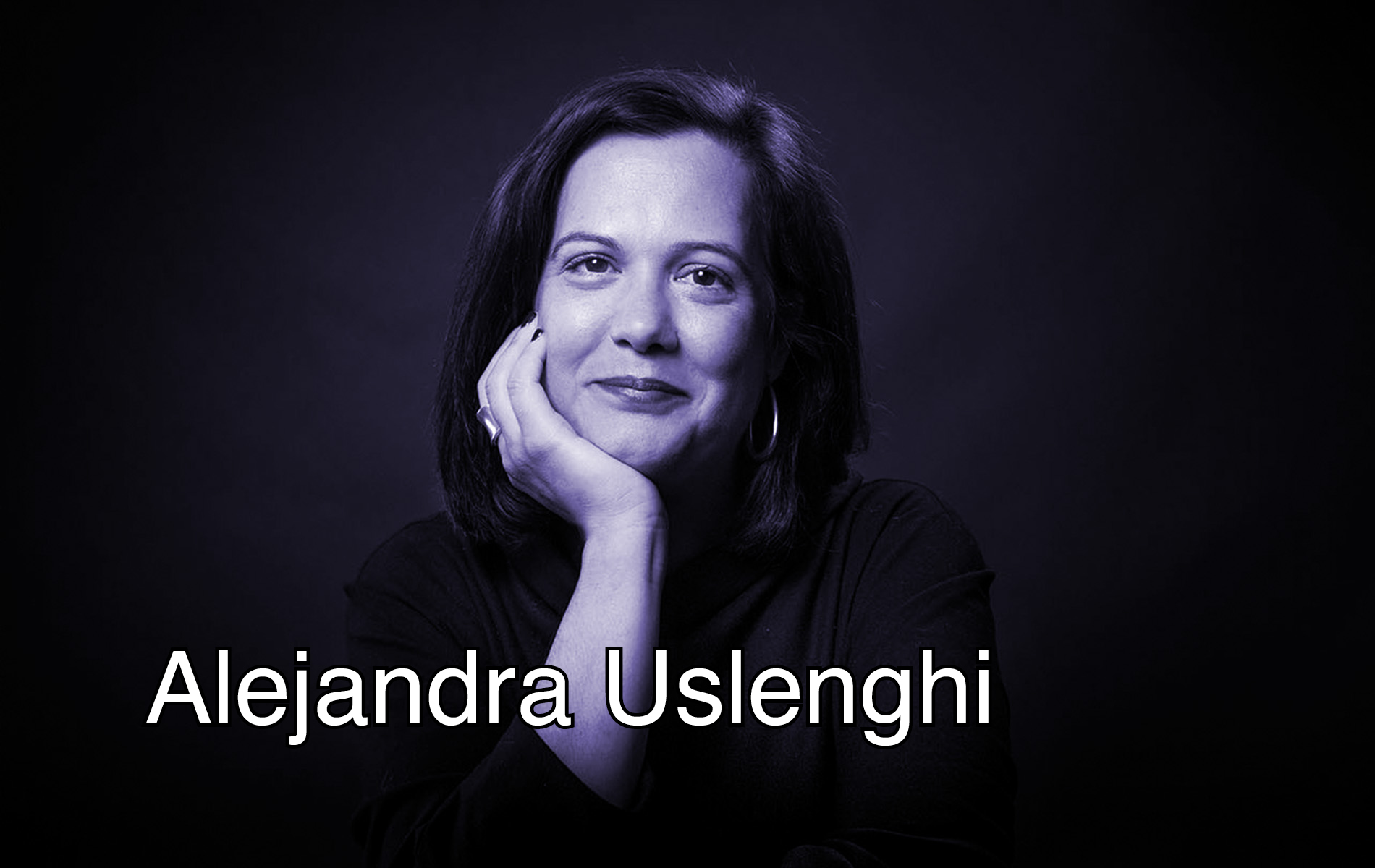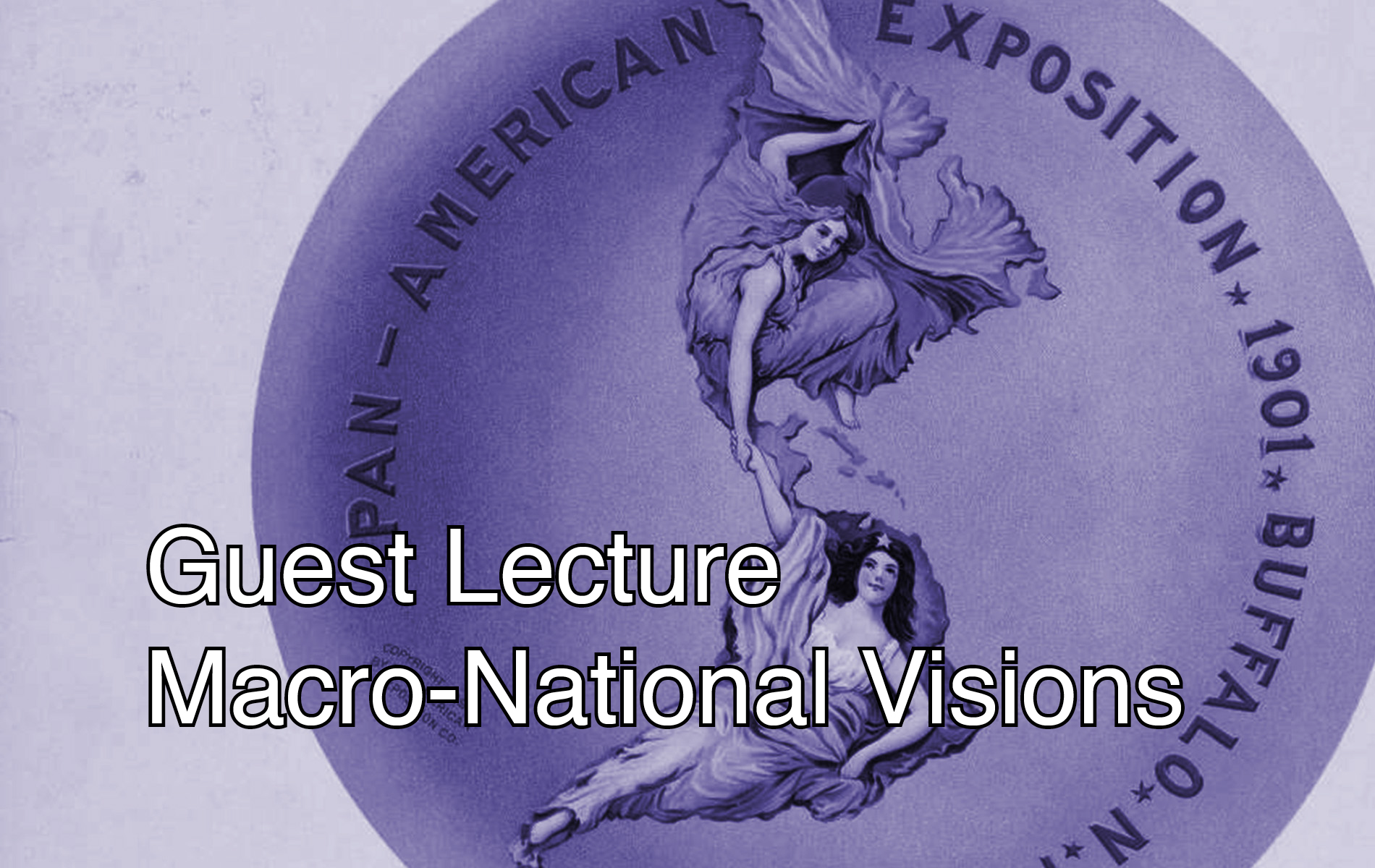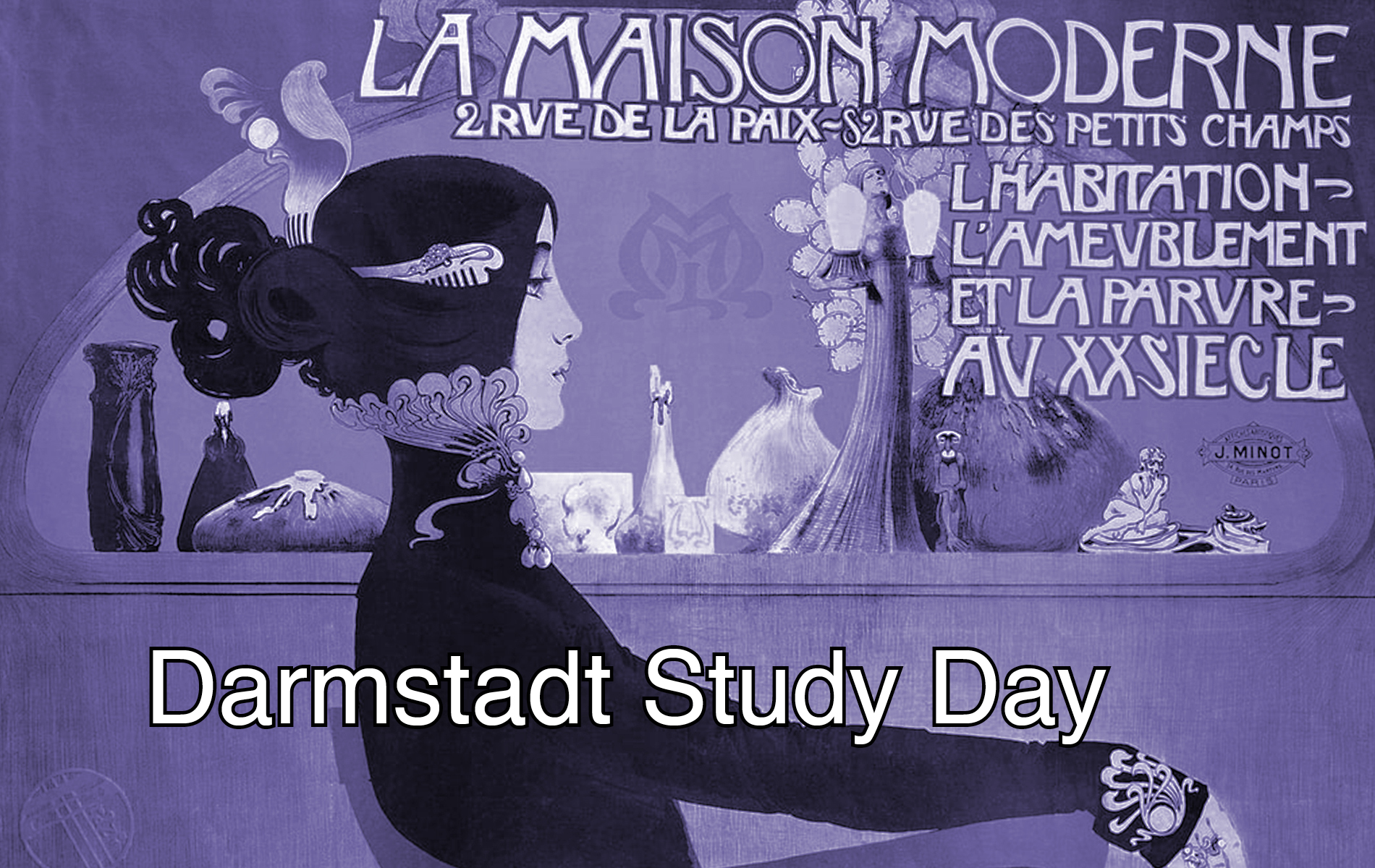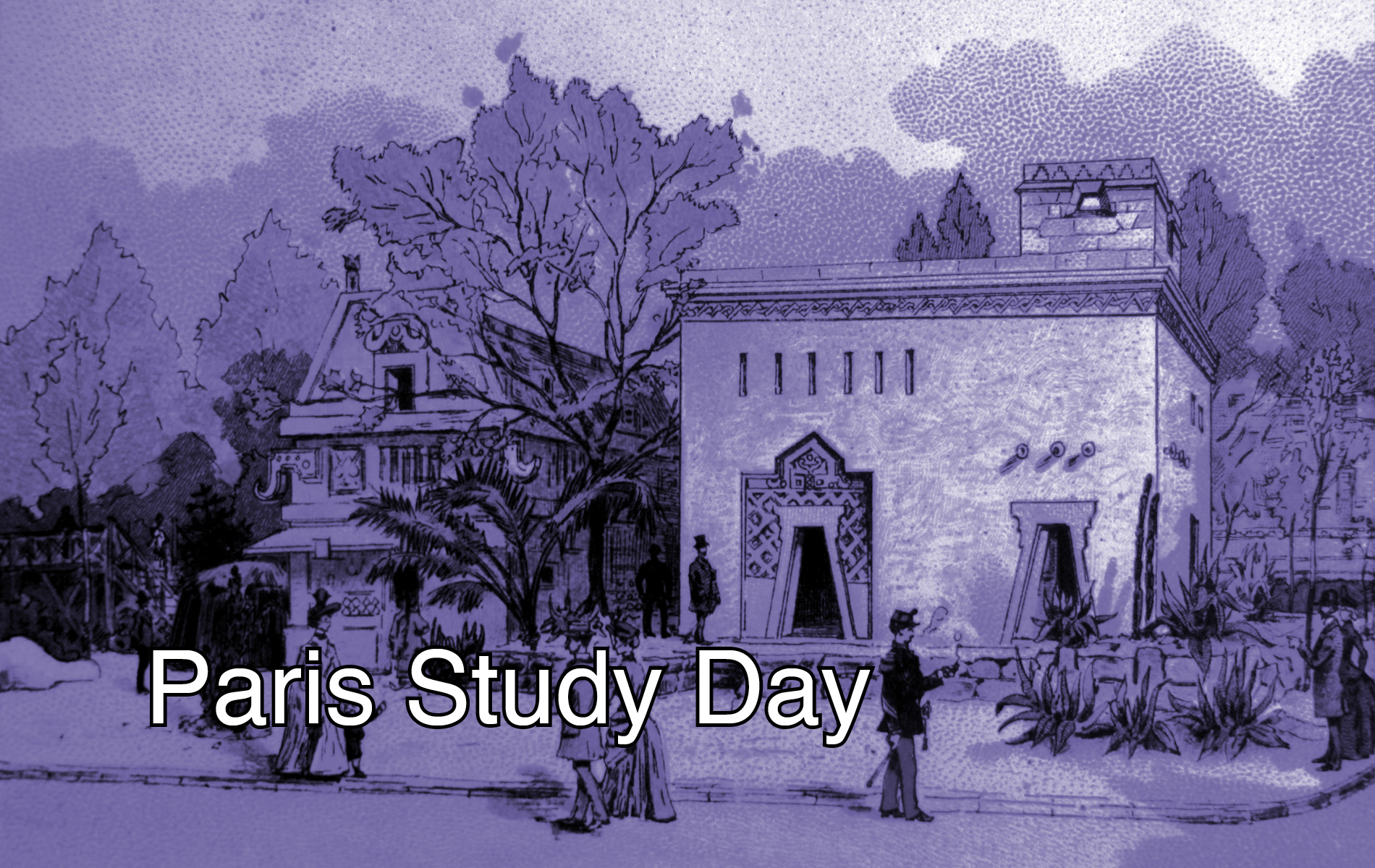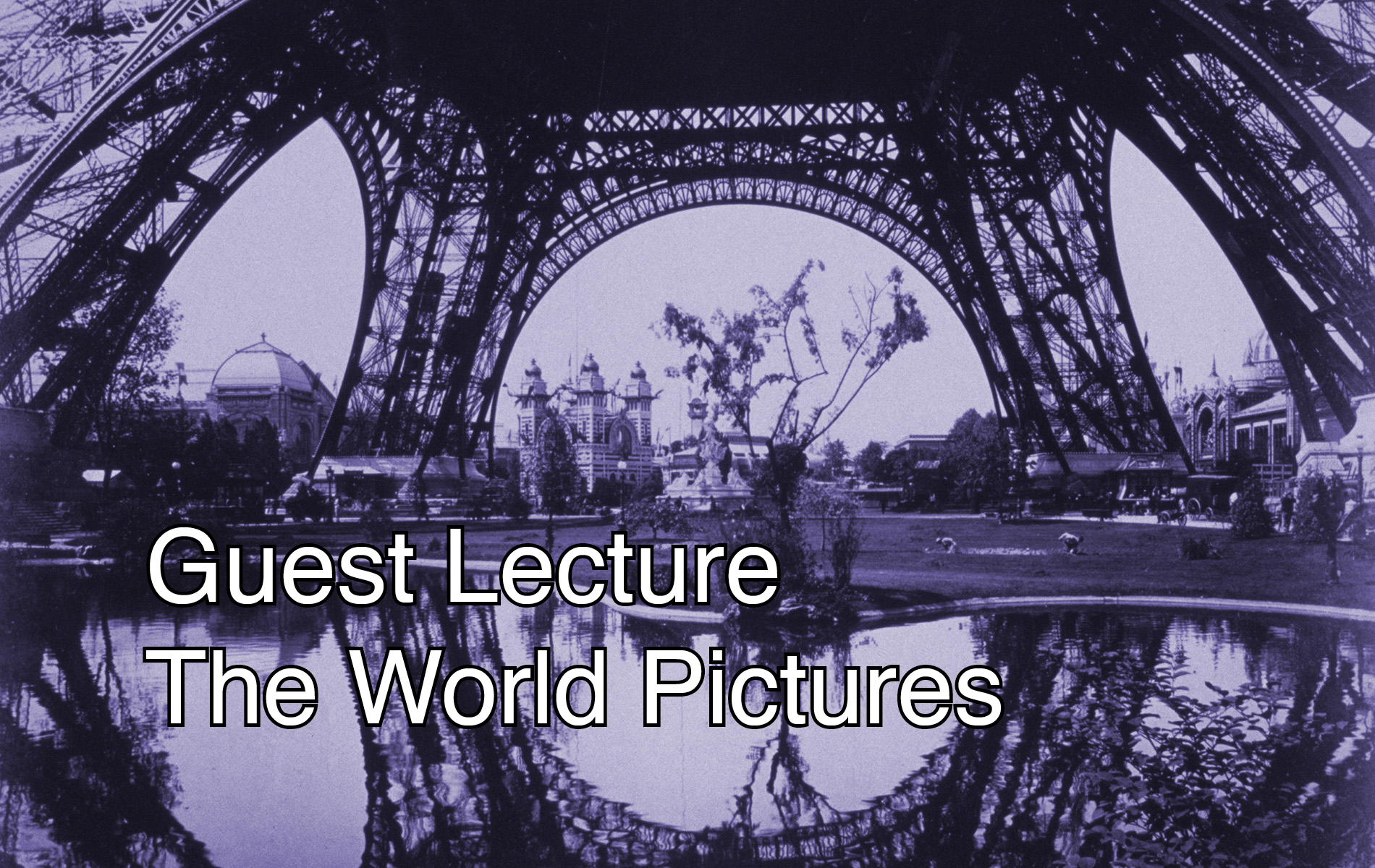
The World’s Fairs of the 19th and early 20th centuries gave rise to significant impulses for the histories of art and fashion. Both were fixed components of the national self-presentation at the world’s fairs from the very beginning. This research project will conduct a fundamental revision of art and fashion, for the first time in the context of the world’s fairs.
First, the research project will make a significant contribution to a de-centering of art and fashion metropolises. Not only was the world brought together in miniature at the world expositions, but also objects and artifacts from very different areas of technology, handcrafts, the visual arts, and fashion were brought together in a holistic model. Such unifying ideas were reflected in the nineteenth-century concept of a “Gesamtkunstwerk.” World’s fairs created such centers of seeing and showing, and served, for example, to establish Paris as an art and fashion metropolis, distinguishing it from its ‘peripheries,’ such as Latin American representations and colonies, which in contrast were presented as traditional and ‘authentic.’
Second, a central concern of the project is to challenge the constructions of modernity associated with the fairs in the context of a “critical globalism.” Staging ‘modern’ art as related to the ‘national schools’ emerging at the same time was also a way of negotiating artistic metropolitanness and ‘periphery’ in the transnational framework of the world’s fairs. Thus, world’s fairs created a competition over modernity, where the western nations were conceived as industrially, artistically, and fashionably advanced. Latin America in particular, as not yet modern but no longer colonized, take on an ambivalent role in the context of the world’s fairs.
Third, art history and fashion studies thus require a substantially new perspective by approaching the entanglements of the world’s fairs from positions of postcolonial and decolonial theory. Such a theoretical formation is particularly well suited for working out ambivalences, since it uses multiplied views to expand the binary constructions of center and periphery, modernity and tradition. The project breaks new ground working out the “entangled histories” of art and fashion at the world’s fairs against the backdrop of colonialism, imperialism, and globalization.
On the basis of case studies in the two following two main areas, essential knowledge can be gained about how art and fashion are mutually connected in the multi-layered context of the world’s fair: 1. “Fashioning the World” (directed by Prof. Dr. Alexandra Karentzos) will concentrate on the role of fashion and textiles in the globalized context of the artistic exchange at the world’s fairs; and 2. “De-/Colonial Modernities: Representing ‘Peripheries’ at World’s Fairs” (directed by Prof. Dr. Miriam Oesterreich) will focus on the ambivalent position of Latin America as ‘peripheral’ presentations.
First, the research project will make a significant contribution to a de-centering of art and fashion metropolises. Not only was the world brought together in miniature at the world expositions, but also objects and artifacts from very different areas of technology, handcrafts, the visual arts, and fashion were brought together in a holistic model. Such unifying ideas were reflected in the nineteenth-century concept of a “Gesamtkunstwerk.” World’s fairs created such centers of seeing and showing, and served, for example, to establish Paris as an art and fashion metropolis, distinguishing it from its ‘peripheries,’ such as Latin American representations and colonies, which in contrast were presented as traditional and ‘authentic.’
Second, a central concern of the project is to challenge the constructions of modernity associated with the fairs in the context of a “critical globalism.” Staging ‘modern’ art as related to the ‘national schools’ emerging at the same time was also a way of negotiating artistic metropolitanness and ‘periphery’ in the transnational framework of the world’s fairs. Thus, world’s fairs created a competition over modernity, where the western nations were conceived as industrially, artistically, and fashionably advanced. Latin America in particular, as not yet modern but no longer colonized, take on an ambivalent role in the context of the world’s fairs.
Third, art history and fashion studies thus require a substantially new perspective by approaching the entanglements of the world’s fairs from positions of postcolonial and decolonial theory. Such a theoretical formation is particularly well suited for working out ambivalences, since it uses multiplied views to expand the binary constructions of center and periphery, modernity and tradition. The project breaks new ground working out the “entangled histories” of art and fashion at the world’s fairs against the backdrop of colonialism, imperialism, and globalization.
On the basis of case studies in the two following two main areas, essential knowledge can be gained about how art and fashion are mutually connected in the multi-layered context of the world’s fair: 1. “Fashioning the World” (directed by Prof. Dr. Alexandra Karentzos) will concentrate on the role of fashion and textiles in the globalized context of the artistic exchange at the world’s fairs; and 2. “De-/Colonial Modernities: Representing ‘Peripheries’ at World’s Fairs” (directed by Prof. Dr. Miriam Oesterreich) will focus on the ambivalent position of Latin America as ‘peripheral’ presentations.

Miriam Oesterreich
Dr. phil., is a Professor for Theory of Design and Gender Studies at the University of the Arts in Berlin and Co-Principle Investigator of the project.
m.oesterreich@udk-berlin.de
show more
Dr. phil., is a Professor for Theory of Design and Gender Studies at the University of the Arts in Berlin and Co-Principle Investigator of the project.
m.oesterreich@udk-berlin.de
show more

Alexandra Karentzos
Dr. phil., is a Professor of Fashion and Aesthetics at the Technical University of Darmstadt and Co-Principle Investigator of the project.
alexandra.karentzos@tu-darmstadt.de
show more
Dr. phil., is a Professor of Fashion and Aesthetics at the Technical University of Darmstadt and Co-Principle Investigator of the project.
alexandra.karentzos@tu-darmstadt.de
show more

Elena Nustrini
M.A., is part of the research project as a Ph.D. student in Art History at the University of Arts, Berlin.
e.nustrini@udk-berlin.de
show more
M.A., is part of the research project as a Ph.D. student in Art History at the University of Arts, Berlin.
e.nustrini@udk-berlin.de
show more
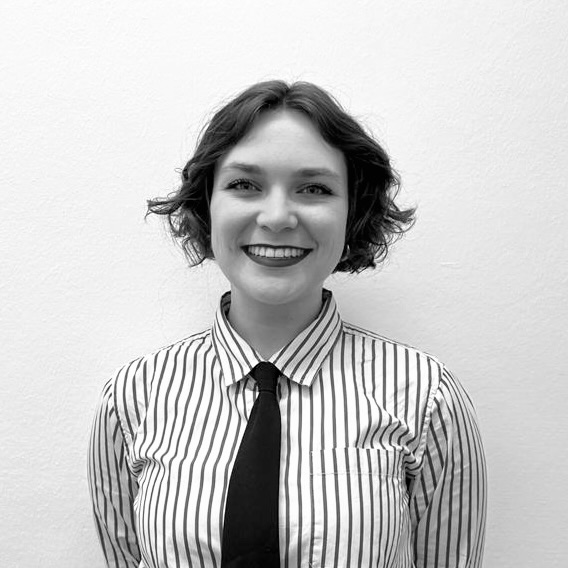
Lizzy Rys
M.A., is part of the research project as a Ph.D. student in Art History and Fashion Studies at the Technical University of Darmstadt.
lizzy.rys@tu-darmstadt.de
show more
M.A., is part of the research project as a Ph.D. student in Art History and Fashion Studies at the Technical University of Darmstadt.
lizzy.rys@tu-darmstadt.de
show more

Tobias Scholze
studies Visual Communication at the University of the Arts Berlin and is a student assistant in the project team.
t.scholze@udk-berlin.de
studies Visual Communication at the University of the Arts Berlin and is a student assistant in the project team.
t.scholze@udk-berlin.de

Alicia Nischwitz
M.A., earned her Bachelor of Arts in German Studies and History in 2022 and her Master of Arts in History in 2024 at TU Darmstadt.
During her studies, she worked as a student assistant on the DFG project from December 2022 to March 2025.
alicia.nischwitz@stud.tu-darmstadt.de
M.A., earned her Bachelor of Arts in German Studies and History in 2022 and her Master of Arts in History in 2024 at TU Darmstadt.
During her studies, she worked as a student assistant on the DFG project from December 2022 to March 2025.
alicia.nischwitz@stud.tu-darmstadt.de
Guest Residencies
Two residencies are part of the project: Prof. Dr. Alejandra Uslenghi (Northwestern University, USA) and Prof. Dr. Rebecca Houze (Northern Illinois University, USA) are invited to accompany the project team for 14 days each. The residencies are meant to facilitate both exchange in terms of content as well as to develop the discussions in the focus areas, expanding them to other research perspectives. This is achieved through reading groups, workshops, and discussion forums with all those participating in the research project.

Publications
OUT NOW!
Decentering World’s Fairs
Transcultural Perspectives on Art, Fashion, and Latin America
How are the histories of art and fashion connected in the global context of world’s fairs? The contributors to this volume analyze the changing roles assumed by the arts, visual media, handicrafts, and artifacts and investigate the unifying conceptions of the ‘Gesamtkunstwerk’ in the framework of national representations at world’s fairs. They reflect the ambivalent status of Latin American re-/presentations and the artistic and curatorial strategies employed by representatives of (post)colonial or ‘peripheral’ states. By focusing on transcultural style migrations and aesthetic discourses in a globalized art world, the volume provides a re-vision of international exhibitions and world’s fairs from the perspective of a critical art history.
Purchase here
Press & Media
On the occasion of the opening of the current World Expo in Osaka, Japan, Miriam Oesterreich discusses the topic "Nabelschau der Nationen – Was erzählt die Expo über die Welt?" in the SWR Kultur radio program “Forum” (April 11, 2025)
Miriam Oesterreich in a Deutschlandfunk Kultur interview on the occasion of the opening of the current World Expo in Osaka, Japan and on the topic of the loss of significance of the world's fair exhibition format (April 12, 2025)
